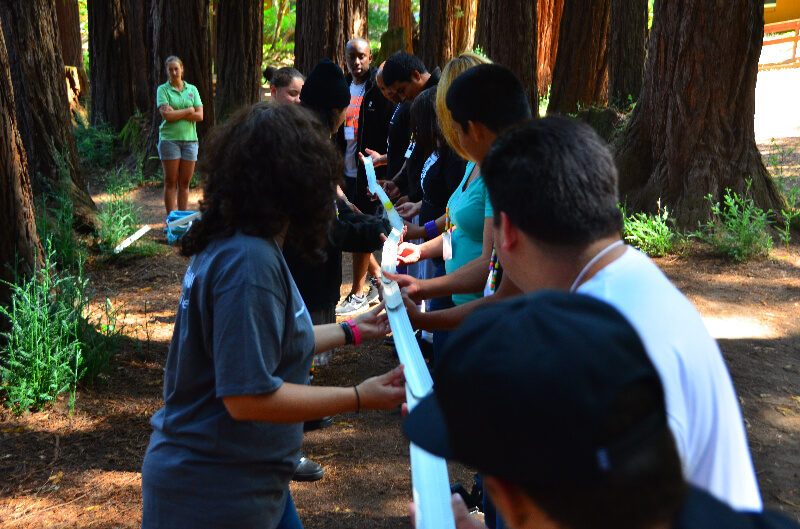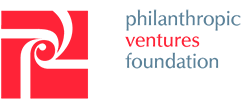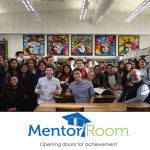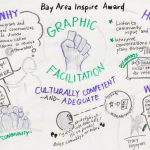Breaking the Cycle in Juvenile Justice: An Interview with a Bay Area Inspire Awardee
At the start of 2016, Philanthropic Ventures Foundation (PVF) awarded grants to eight young Bay Area residents with fresh ideas for building better communities. These awards were made possible through the Bay Area Inspire Awards, which provides $10,000 grants to 18-30 year olds living in San Francisco, Alameda, and San Mateo Counties. Below is an interview with one of these awardees, Anastacia Duenas, who is using her award to implement a peer mentoring program for youth navigating the juvenile justice system.
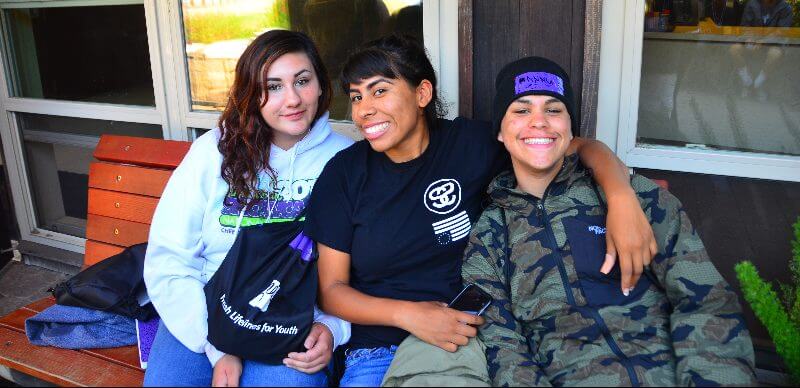
PVF: Tell us about your project. What inspired you to launch it?
Anastacia: My project is a unique peer mentoring program that brings together young adults (ages 18+) who have successfully completed probation and many other obstacles, with youth (ages 14-18) who are just beginning their journey through the juvenile justice system. This program bloomed from my involvement in an existing organization, Fresh Lifelines for Youth (FLY), which provides several leadership, mentor, and law programs to youth in or at-risk of entering the juvenile justice system. These motivated and active teens in the community have so much love and leadership to spread, and they just need a little push, support, and guidance. After my own participation in FLY, I could not imagine just leaving the program, so my fellow alumni Nick helped me brainstorm how we could stay involved in the FLY community. We decided to create a sort of a “recycling system,” so that youth who successfully complete one of FLY’s leadership programs can become part of a peer mentoring program to give back and take the next step in developing their leadership skills.
PVF: Tell us about some of your project accomplishments to date.
Anastacia: Thanks to the grant, I was able to attend a three-day retreat with participants in the peer mentoring program, to create bonds and build trust between the alumni and new youth, and I was able to offer a stipend to alumni for assisting staff members during the retreat. I was also able attend a Yelp tour with other alumni and peer leaders, which opened up our eyes to different job opportunities and establishing relationships with local businesses. We went white water rafting, and we always began or ended our events with family-style meals. These activities are very crucial to the growth and development of these youth’s lives (including myself) because they teach us healthy and sober ways to have fun without drugs, violence, or alcohol.

PVF: What are the next steps for your project?
Anastacia: In the next months, I want to have all of the alumni (5 or 6) go through a mentoring workshop. I also want to plan and run an alumni event (such as volunteering somewhere in the community or doing something fun) without staff involvement, and I want to attend a two-day camping retreat for the alumni to work on leadership, mentoring, and communication skills.
PVF: What is your hope with how this project will create change in the community?
Anastacia: My hope is that we don’t just send people off after they finish the programs that helped them get off probation and graduate from school, but that these people are equipped to continue to give back to the community and the programs that helped them. Maybe one day FLY will be run by the youth who were once participants in its programs. I hope this peer mentoring program, alongside FLY, takes teens who might normally be smoking, drinking, or partaking in any illegal activities, and shows them positive ways to handle stress, anger, and other struggles. Now graduation and probation termination are realistic goals instead of obstacles and setbacks.
